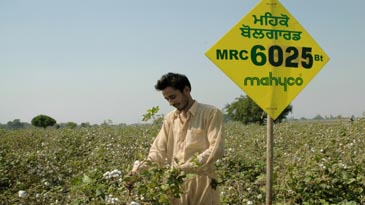Africa agriculture trade monitor 2019
The second annual Africa Agriculture Trade Monitor assesses emerging and long-term trends and drivers shaping Africa’s trade in agricultural products and evaluates the possible impacts of current trade
The second annual Africa Agriculture Trade Monitor assesses emerging and long-term trends and drivers shaping Africa’s trade in agricultural products and evaluates the possible impacts of current trade
Malaria afflicts many people in the developing world, and due to its direct and indirect costs it has widespread impacts on growth and development. The global impact of malaria on human health, productivity, and general well-being is profound.
Agriculture is part of the climate change problem, contributing about 13.5 percent of annual greenhouse gas (GHG) emissions (with forestry contributing an additional 19 percent), compared with 13.1 percent from transportation.
Biotechnology in agriculture has generated a great deal of controversy in recent years. Of the many scientific advances that have occurred in plant breeding since Gregor Mendel conducted his experiments about 150 years ago, crops with genetic modifications seem to have been accorded a unique status.
One of the lingering effects of the food price crisis of 2007
Every day, millions of rural people who depend on agriculture

If fundamental climate change mitigation and adaptation goals are to be met, international climate negotiations must include agriculture.

This study investigates the observed discrepancy between real and perceived commercial risks associated with the use of genetically modified (GM) products in developing countries. <br> It focus particularly on the effects of GM-free private standards set up by food companies in Europe and other countries on biotechnology and biosafety policy decisions in food-exporting developing countries.
Climate change is expected to have serious environmental, economic, and social impacts on South Africa. In particular, rural farmers, whose livelihoods depend on the use of natural resources, are likely to bear the brunt of adverse impacts. The extent to which these impacts are felt depends in large part on the extent of adaptation in response to climate change.

India State Hunger Index 2008 by IFPRI highlights the continued overall severity of the hunger situation in India, while revealing the variation in hunger across states within India.
Rural residents across the developing world earn a large share of their income